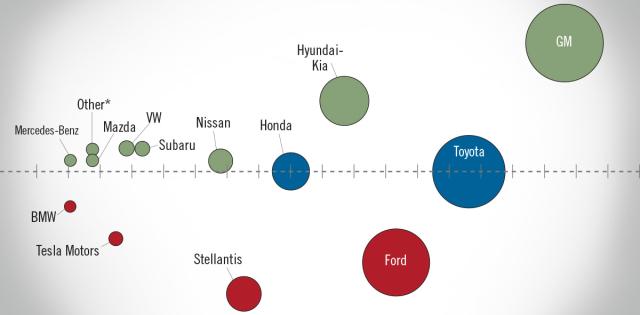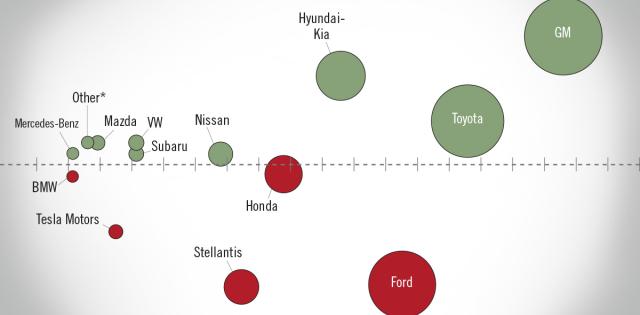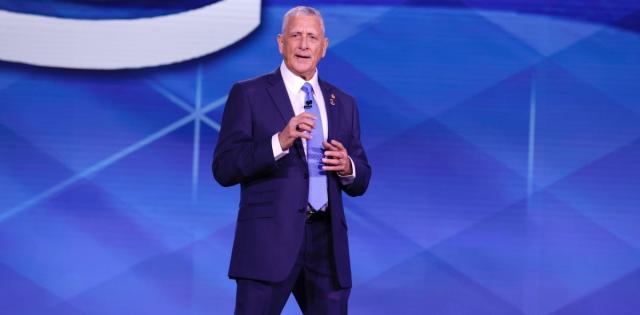The article below is sourced from Reuters Wire Service. The views and opinions expressed in this story are those of the Reuters Wire Service and do not necessarily reflect the official policy or position of NADA.
Volkswagen shares fell on Wednesday as investors worried about the cost and uncertainties of a joint venture with U.S. electric vehicle (EV) maker Rivian aimed at beefing up Europe's biggest automaker's position in EVs.
The German group said on Tuesday it would invest up to $5 billion in Rivian as part of a venture to share EV platforms and software.
The tie-up is the latest shift by Volkswagen from a go-it-alone strategy to bringing in expertise via partnerships in key areas for electrification, from batteries to EV platforms to software.
But it adds to questions about the future of Volkswagen's own software subsidiary, Cariad, which has struggled with years of delays and losses.
"Cariad should and will disappear. The reality is it's going to become irrelevant and die a natural death," said Jefferies analyst Philippe Houchois, adding that no other legacy carmaker had managed to build a competitive software offering alone.
Still, Houchois welcomed the change in strategy signalled by the deal. "The old VW would have kept throwing money at the problem - the new VW with (CEO Oliver) Blume is more pragmatic and humble, looking for help elsewhere."
Responsibility and resources for developing a unified operating system for vehicles across the Volkswagen Group - dubbed the '2.0' software architecture or 'software-defined vehicle' - will be centralised in the joint venture, bringing in expertise from Cariad.
Cariad will also carry on developing its own projects, including software for automated driving, a Volkswagen spokesperson said.
Cariad CEO Peter Bosch said in a LinkedIn post late Tuesday that the Rivian venture would speed up Volkswagen's software development efforts and lower costs.
The partnership mirrors aspects of a deal struck between Volkswagen and Chinese EV start-up Xpeng in July last year to collaborate on software and a China-specific EV platform, though unlike the Xpeng partnership, Rivian and Volkswagen will not develop joint models.
While the software developed with Xpeng is only intended for use in China, that developed with Rivian could technically be used anywhere, the spokesperson said, adding the specifics were not yet decided.
Volkswagen shares have more than halved over the past three years, hit by concerns the sprawling group may struggle to compete with nimble EV rivals in the United States and Asia.
At 1047 GMT, Volkswagen's shares were down 1.97%, the biggest decline on Germany's blue-chip DAX index.
Some analysts raised concerns about the size of the investment, with Volkswagen's target investment ratio of 12% of revenues above the 8% or less targeted by peers like Stellantis.
"While the transaction could make sense strategically ... we believe investors would prefer VW to sell assets, not buy them," Stifel Research said.
Roger Atkins of consultancy Electric Vehicles Outlook Ltd also questioned whether Volkswagen and Rivian were compatible.
"There's the culture issue - trying to combine Rivian's full-stack vertically integrated and flexible, nimble software approach with Volkswagen's more traditional approach of working with multiple suppliers and middle management is like shoving a square peg in a round hole," he said.
For more stories like this, bookmark www.NADAheadlines.org as a favorite in the browser of your choice and subscribe to our newsletter here:











